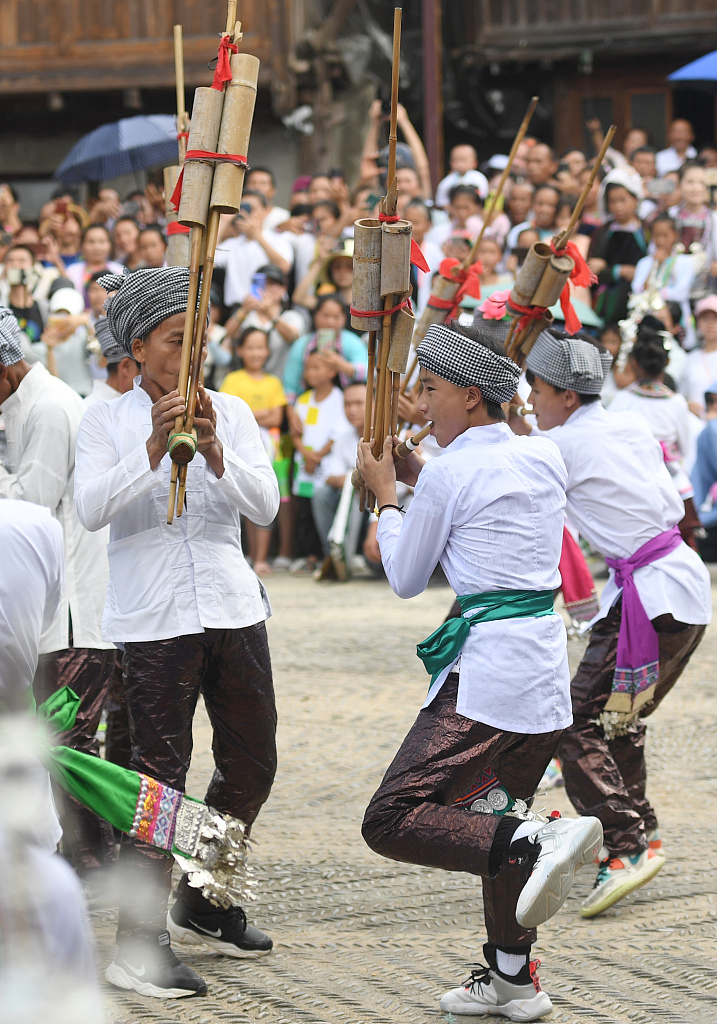The Dong people from Huanggang Village, Liping County, in southwest China’s Guizhou Province, welcomed the han tian jie – or “shouting to the sky festival” – on June 15 according to the traditional Chinese calendar, which falls on August 1 this year.
With a history dating back around 800 years, Huanggang villagers have been passing down this custom since the Ming Dynasty (1368-1644). It is said that, after the area had suffered two years of drought, the village head walked for hundreds of kilometers to find Taoist master Wu Weimin to ask him to hold a ritual for his village and beg for rain.
The master arrived at the stricken village and held prayers on June 15, which quickly brought rainfall and saved the arid place. To express their gratitude to Wu Weimin, locals set the date as the han tian jie festival to pray for good weather for crops and livestock.
On the day, all the residents gather together at a square in the village to follow the instructions of the priest to shout to the sky.
They also play the lusheng – a reed instrument popular among the Dong, Miao and Yao ethnic groups in southwest China – and hold a long-table banquet where villagers and tourists sit down to enjoy a feast.
Singing the Grand Songs of the Dong is an essential part of the program. Since the Dong people don’t have their own written language, they transmit much of their history, culture and knowledge through their songs and this choir art form was included in the Representative List of Intangible Cultural Heritage of Humanity by UNESCO in 2009.
Different from the Grand Songs in other parts of China, the performance at Huanggang Village is only attended by men to show their vigor and masculinity.
In Huangguang, tourists can not only relish the rich and unique customs of the Dong people, but also enjoy an unforgettable rural experience in the fields where rice is cultivated alongside duck and fish.
CGTN

